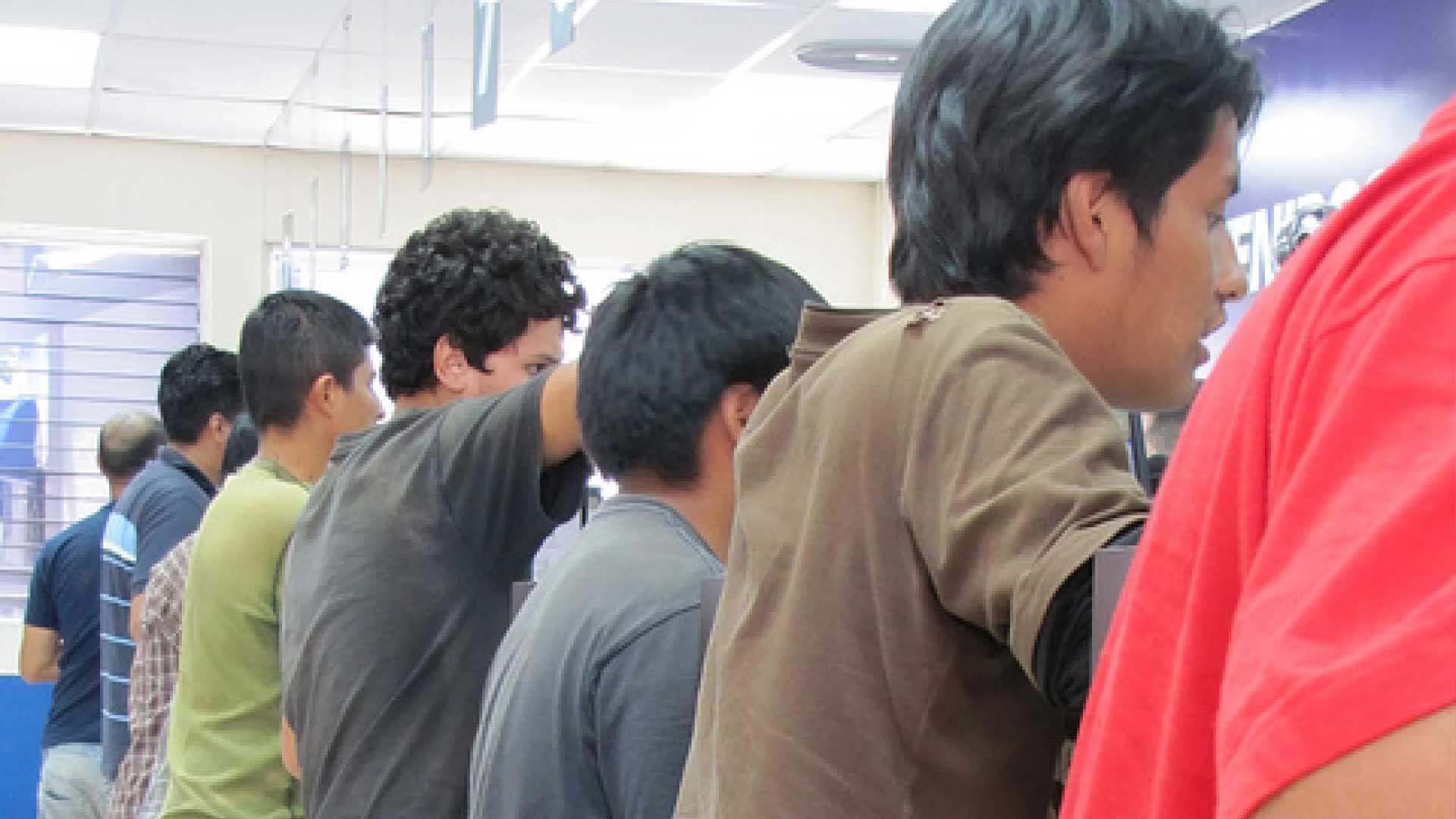 VIEW LARGER Migrants re-enter Guatemala after getting deported from the United States. The number of Central Americans removed from the U.S. is going up.
VIEW LARGER Migrants re-enter Guatemala after getting deported from the United States. The number of Central Americans removed from the U.S. is going up. It’s been a little more than a week since the Biden administration’s executive order went into effect at the border. The order blocks migrants taken into custody between ports of entry from requesting asylum in the U.S., with few exceptions.
Most migrants being apprehended now are barred from applying for asylum, despite U.S. laws and international agreements that require it. They’re instead placed in speedy deportation proceedings and returned either to their home countries or to Mexico.
But Aaron Reichlin-Melnick, policy director at the advocacy group American Immigration Council, says that's more complicated in practice.
"No matter what this order did on paper, it didn’t provide new resources for the removal system, change international agreements, or address the fundamental limitations that prevent the United States from sealing off its borders, as some have called for," he said.
More than a dozen different countries do not accept repatriations from the U.S., according to a 2020 count by the Migration Policy Institute, including China and Russia.
As Fox News reported, a Border Patrol memo sent to San Diego agents this month says migrants from those countries should instead be given notices to appear in immigration court.
A Customs and Border Protection spokesperson said the memo was sent specifically to the San Diego Sector because of the diversity of nationalities present there. But Reichlin-Melnick with advocacy group American Immigration Council says those instructions are nothing new.
"Nationals of countries that do not accept repatriations from the U.S. are going to be processed largely the same this week as they were last week. And of course, the U.S. has grappled with these issues for generations," he said.
Reichlin-Melnick says in addition to chartering deportation flights to countries like Ecuador, Guatemala and Honduras, the Biden administration is also sending migrants from Haiti, Nicaragua, Cuba and Venezuela to Mexico, under what he says is an unprecedented agreement between Mexico and the U.S.
Every presidential administration over the last decade rely even more heavily on Mexico. And Mexico today is more than it's ever done in the past," he said. "We've also seen every administration throw everything at the wall to see what will stick."
Reichlin-Melnick especially as global migration increases — because of climate change, conflict and economic insecurity —there's no real way to shut down the border.
"No president can simply put up a force field at the border with the stroke of a pen, these basic fundamental resource limitations apply to the Biden administration, the Trump administration and previous administrations before that."
He says instead of focusing on more enforcement efforts at the border, Congress and the White House should bulk up resources to handle cases — like more asylum officers, immigration judges and port personnel.


By submitting your comments, you hereby give AZPM the right to post your comments and potentially use them in any other form of media operated by this institution.